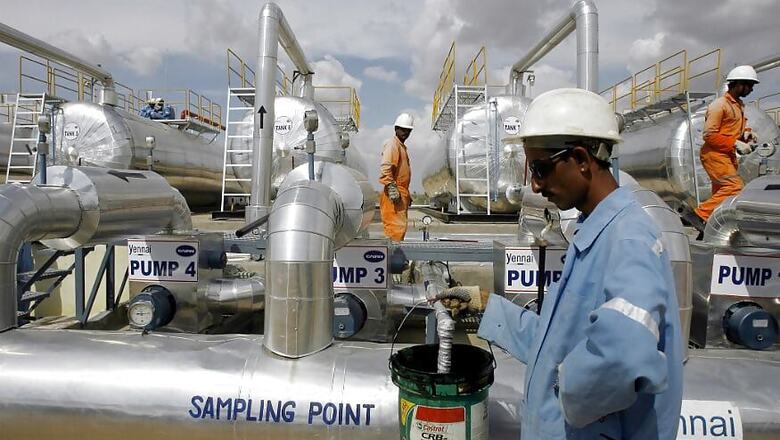Govt Overhauls Oil, Gas Exploration Policy; No Profit to be Charged on Output in Less Explored Areas

views
New Delhi: In a major overhaul of oil and gas exploration permits, the government will not charge any share of profit on hydrocarbons produced from less explored areas as it looks to attract the elusive private and foreign investment to raise domestic output.
Breaking from the two-and-a-half decade-old practice of having a uniform contractual regime for all sedimentary basins in the country, the new policy provides for different rules for areas that already have producing fields and ones where commercial production of oil and gas is yet to be established.
Irrespective of the basins, producers will get complete marketing and pricing freedom for oil and gas in future bid rounds said an official notification detailing rule changes approved by the Union Cabinet on February 28.
Oil and gas acreage or blocks in all future bid rounds will be awarded primarily on the basis of exploration work commitment, it said.
While companies will have to pay a share of revenue from oil and gas produced in Category-I sedimentary basins such as Krishna Godavari, Mumbai Offshore, Rajasthan or
Assam where commercial production has already been established, they will be charged only prevalent royalty rates on oil and natural gas in the less explored Category-II and III basins.
"To expedite production, concessional royalty rates will be applicable if production is commenced within four years for on land and shallow water blocks, and five years for deep water and Ultra-deepwater blocks from the effective date of the contract," it said.
India began bidding out oil and gas exploration acreage in 1999 under New Exploration Licensing Policy (NELP) that awarded blocks to companies offering maximum work commitment. But companies were obliged to share with the government profits made after recovery of cost.
Two years back, the BJP-government brought in Hydrocarbon Exploration and Licensing Policy (HELP) that provided for blocks being awarded to companies offering maximum revenue at different levels of prices and production.
HELP failed to either raise output or attract new players.
The notification said the new policy was being formulated "to increase exploration activities, attract domestic and foreign investment in unexplored/unallocated areas of sedimentary basins, and enhance domestic production of oil and gas".
While blocks in Category-1 basins would be awarded on basis bided exploration work and revenue share in the ratio of 70:30, those "in Category-II and CategoryIII Basins will be awarded on the basis of international competitive bids based exclusively on the exploration work programme."
"The contractor will have full marketing and pricing freedom to sell on arm's length basis. Discovery of prices will be on the basis of transparent and competitive bidding. No exports will be allowed. There will be no allocation by Government," the notification said.
The Contractor will have liberal freedom to transfer/exit the block provided work programme has been adhered to. However, a suitable penalty mechanism will be devised for non-completion of the work programme.
The notification said that in case of the existing contracts, marketing and pricing freedom to sell on arm's length basis through competitive bidding will be permitted to those new gas discoveries whose Field Development Plan (FDP) will be approved for the first time after the date of issuance of the new policy.
In case of nomination fields given to national oil companies, marketing and pricing freedom will be provided subject to the condition that FDP for new gas discoveries is approved by DGH.
"To incentivise additional gas production from Administered Price Mechanism (APM) fields, reduction in royalty by 10 per cent of the applicable royalty will be granted on the additional production over and above Business As Usual (BAU) scenario. BAU scenario will be approved by DGH on third-party evaluation," it said.
Existing contracts already having marketing and pricing freedom would continue on the existing terms.

















Comments
0 comment